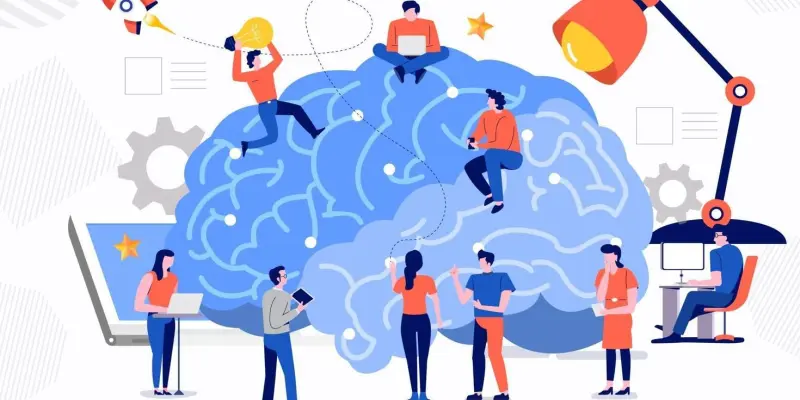In a world where technological advancements are rapidly reshaping the landscape of the workplace, the integration of AI remains a topic of both intrigue and concern. Active AI users are showcasing remarkable optimism regarding the transformative potential of artificial intelligence in their professional lives. According to Workday’s latest global research report, this enthusiastic group displays a sentiment score of 4.23 out of five, an indicator of their strong belief in AI’s positive impact. Conversely, those who plan to adopt AI within the next 12 months exhibit a more cautious outlook, reflected in their lower sentiment score of 3.89.
AI’s Promising Benefits in Skill Development and Economic Value
The study outlined several notable benefits that AI could bring to the workplace. Of particular interest is the finding that 83% of respondents believe AI will support their ability to develop new skills. This belief underscores the potential for AI to serve as a powerful tool in enhancing employee capabilities and fostering continual learning. Moreover, the same percentage of respondents think AI will enhance human creativity and generate new economic value. This highlights a crucial dynamic: AI is not merely a replacement for human effort but an enabler of innovation and creative problem-solving.
Overwhelmingly, 90% of the study’s participants feel that AI will increase transparency and accountability within organizations. This sentiment is particularly significant as businesses increasingly seek ways to build trust and clarity in their operations. Artificial intelligence’s ability to manage routine and repetitive tasks efficiently frees up employees to focus more on higher-level responsibilities. Astonishingly, 93% of respondents envision AI allowing more focus on strategic planning and problem-solving, enabling them to leverage their uniquely human skills. These results paint an optimistic picture of AI as a means to empower rather than displace the workforce.
Balancing Opportunities and Potential Job Reductions
Despite these positive insights, it’s essential to consider the concerns surrounding AI’s impact on employment. A report by the World Economic Forum indicated that 41% of employers anticipate reducing their headcounts because of AI integration. This forecast has inevitably sparked fears about job security and workforce displacement. Nevertheless, proponents of AI argue that the technology presents an unparalleled opportunity to elevate human creativity, empathy, and connectivity. By offloading mundane and repetitive tasks to AI systems, employees can redirect their energy towards more creative and empathetic endeavors.
Jim Stratton, Workday’s Chief Technology Officer, champions this perspective, describing AI as an “incredible opportunity” to fully utilize human-centric skills. In a similar vein, Jennie Rogerson from Canva discusses how AI will enhance operational efficiencies, predicting that these advancements will be fully realized by 2025. However, she emphasizes that AI cannot replace essential human elements such as empathy, communication, and relationship-building. These aspects remain irreplaceable, underlying the argument that while AI can automate certain functions, it will never substitute the nuanced and deeply human attributes that are critical in many professional settings.
Moving Forward with a Balanced Approach
In today’s rapidly evolving workplace, technological advancements are continuously reshaping the way we work, with AI playing a crucial role. The integration of artificial intelligence still generates both excitement and apprehension. Notably, current active AI users exhibit a striking level of optimism about AI’s transformative potential in their jobs. According to Workday’s recent global research report, these users have a high sentiment score of 4.23 out of five, indicating their strong faith in AI’s positive influence on their professional lives. On the other hand, individuals who plan to incorporate AI within the next year demonstrate a more cautious perspective, with their sentiment score being slightly lower at 3.89. This difference highlights the varying levels of confidence and readiness regarding AI adoption. While some embrace AI with enthusiasm, others proceed with more caution, reflecting their uncertainties about its impact. Overall, the integration of AI in the workplace remains a dynamic and evolving topic, sparking diverse views and discussions among professionals.

